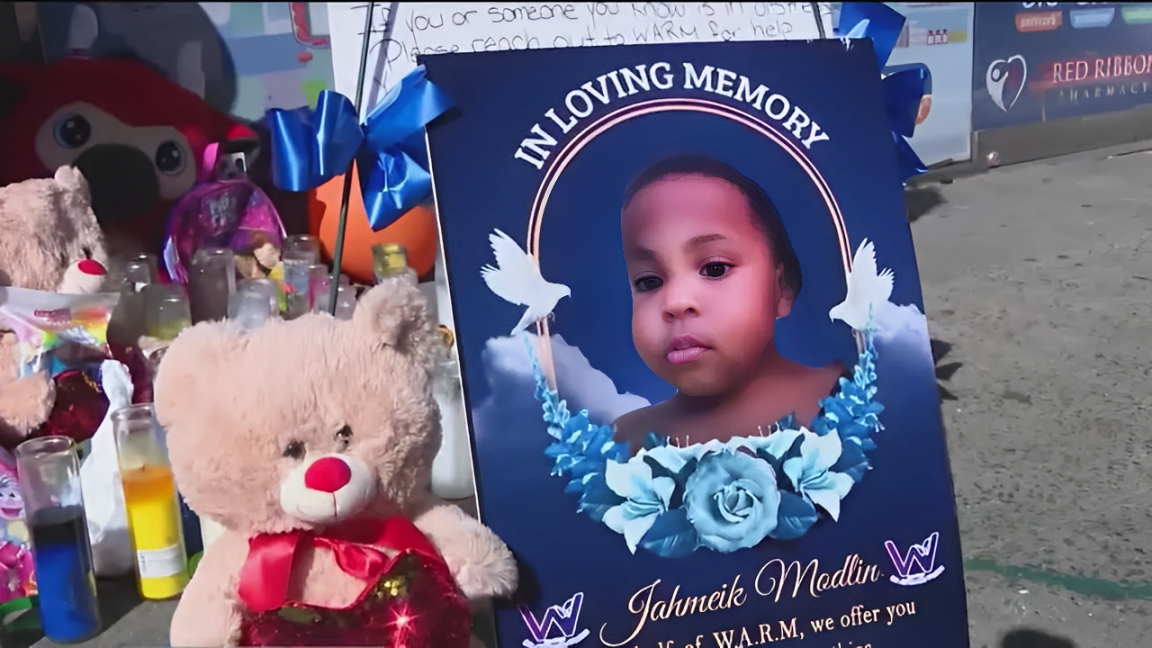4-Year-Old Harlem Boy’s Death Sparks Questions Over Child Services’ Response
Nearly two weeks after the tragic death of 4-year-old Jahmeik Modlin in Harlem, there are still no clear answers regarding how such a tragedy was allowed to unfold.
Authorities confirmed that Jahmeik died of malnutrition on October 14, 2024, and his three older siblings were also hospitalized for severe malnourishment.
Both parents have been charged with manslaughter, but a larger question looms: Could this have been prevented?
Prosecutors allege that Jahmeik’s parents had locked away all food in the household, despite having a stocked pantry.
This led to the boy’s fatal malnutrition while his siblings suffered similarly dire conditions.
Despite clear signs of neglect, sources indicate that the city’s Administration had previously flagged the family for Children’s Services (ACS), which reportedly conducted an investigation but found no evidence of abuse.
This revelation has prompted public outrage and scrutiny over ACS’s handling of the case. Critics, including former child protective services agents, argue that the agency’s lack of transparency may prevent necessary accountability and reforms.
Questions Over ACS Investigation
The Administration for Children’s Services has come under fire for its alleged failure to intervene adequately in Jahmeik’s case.
The agency, which had reportedly investigated a prior abuse allegation against the family, deemed the claim “unfounded,” allowing the family to remain together.
With Jahmeik’s death now public, the agency’s response and internal processes face renewed scrutiny.
“I see no way in which it possibly could,” said Sarah Font, a former child protective services agent, when asked if revealing how often ACS was contacted about the Modlin family would harm surviving siblings. “I just don’t think that excuse makes any sense.”
Many child advocates are echoing similar sentiments, calling for transparency in how ACS handles high-profile cases of child abuse and neglect.
They argue that a lack of disclosure, particularly in such tragic situations, prevents accountability and stymies potential policy changes that could save lives in the future.
Font further expressed concern about inconsistencies in how child deaths are reported, noting that there seems to be a pattern of withholding information in the most publicized cases.
Under New York law, any child death involving suspected abuse must be investigated, and a summary of the findings should be released.
However, ACS, along with the state agency overseeing it, has broad discretion in determining what details become public.
While the agency has pledged to conduct a thorough review of Jahmeik’s death, they have refrained from releasing specific information, citing concerns about re-traumatizing the surviving children.
Mayor Adams Defends ACS
Amid these concerns, Mayor Eric Adams has expressed his support for the city’s child welfare system.
Speaking on the matter earlier this week, Adams praised the dedication of ACS professionals, stating, “I know we have a group of hardworking professionals that don’t want to disrupt families but would like to go in and take necessary steps to protect children.”
Still, child advocates insist that this case, like others before it, demonstrates a systemic failure in protecting vulnerable children.
While Mayor Adams’ defense of ACS highlights the complexities of child welfare cases, it has done little to quell the growing demand for a public accounting of the agency’s role in Jahmeik’s death.
Conclusion
As investigations continue into the circumstances surrounding Jahmeik Modlin’s death, the city’s child protection services face mounting pressure to improve transparency and accountability.
Child advocates argue that without understanding what went wrong in cases like Jahmeik’s, it is impossible to ensure that similar tragedies are avoided in the future.
Whether ACS will release further details about the Modlin case remains to be seen, but one thing is certain: the tragic death of a young boy in Harlem has reignited a longstanding debate over how the city’s child welfare system can better protect its most vulnerable citizens.

